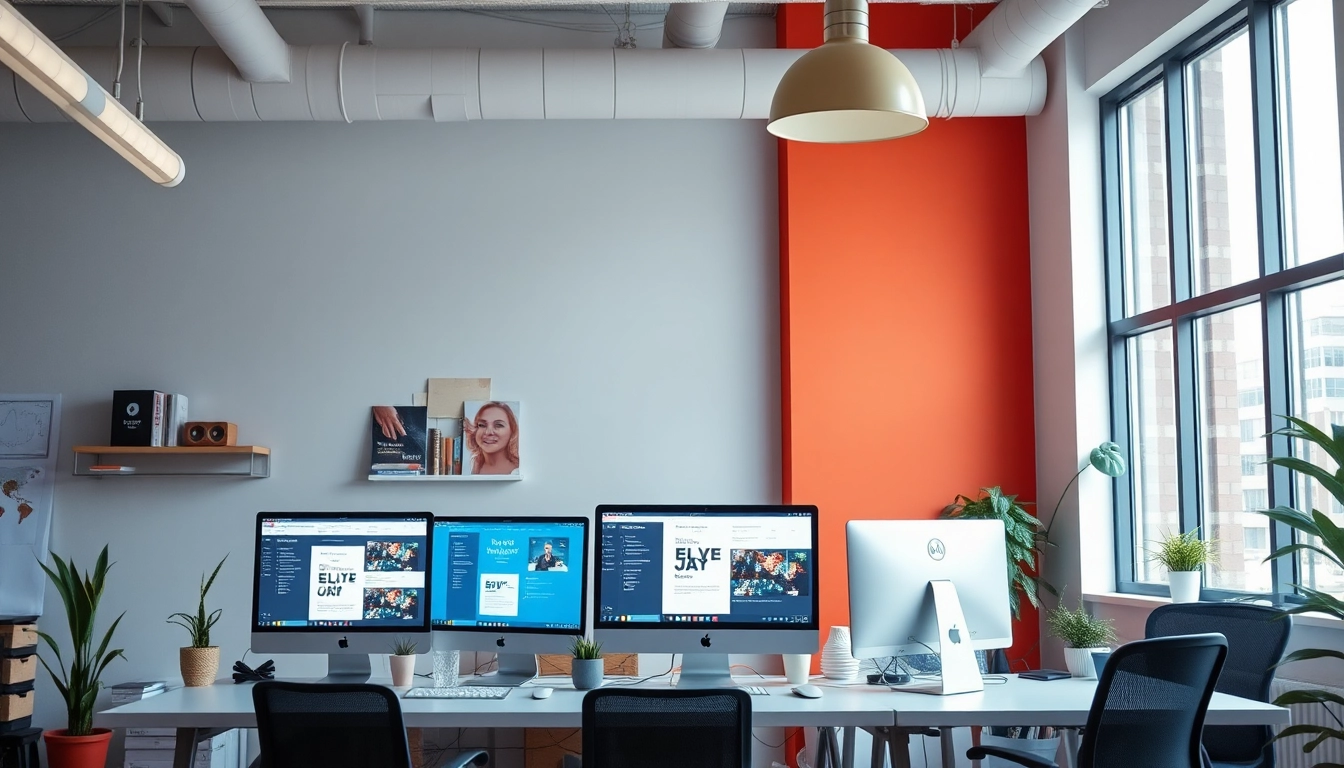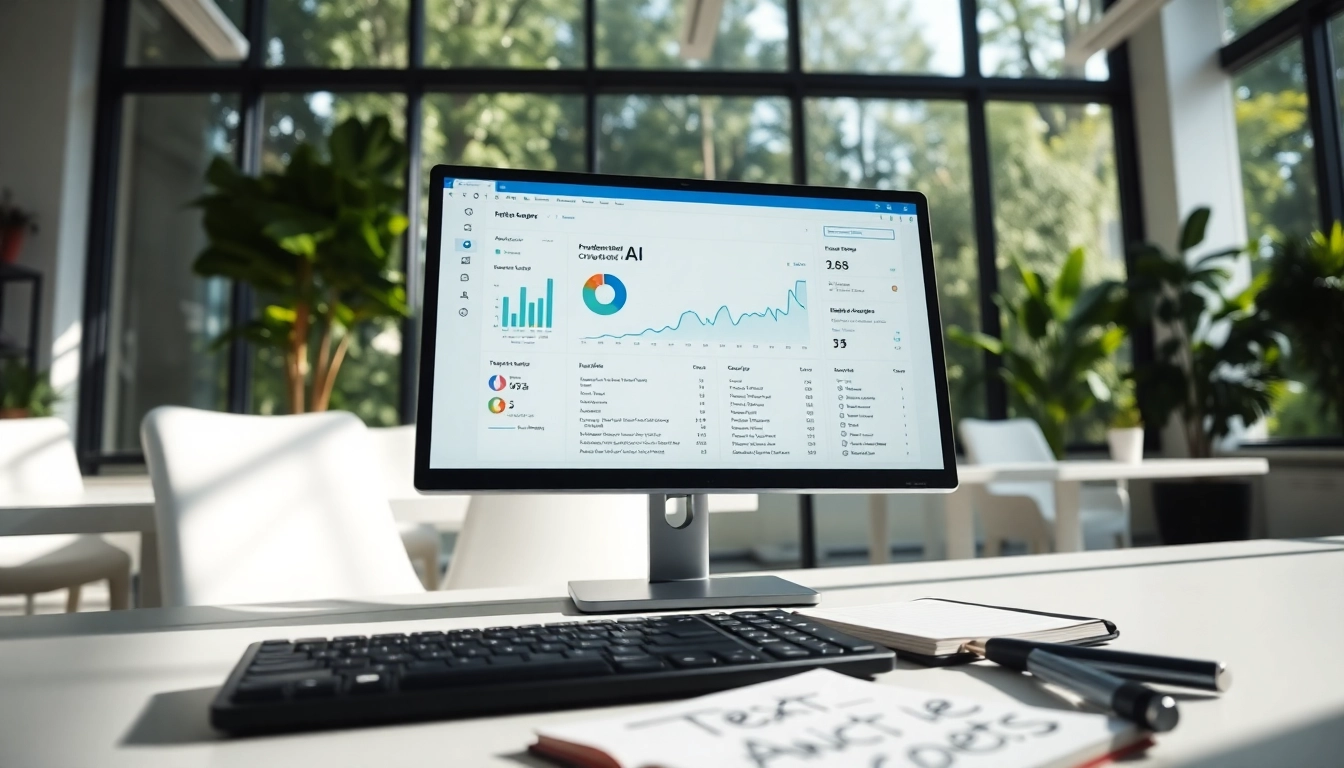Understanding Website Design Manchester
In an increasingly digital world, every business needs a strong online presence, and this begins with professional website design. Website design Manchester has evolved into a crucial service for local businesses looking to establish their brand and reach their target audience effectively. This article delves into the nuances of website design in Manchester, exploring what it entails, its significance, and how to choose the right service for your needs.
What is Website Design?
Website design encompasses a variety of elements that come together to create an engaging and functional website. It involves the aesthetics, layout, and usability of a website, determining how it looks and interacts with the user. From the arrangement of images and text to the color schemes and interactive elements, every aspect plays a significant role in conveying your brand message.
Effective website design doesn’t just prioritize visual appeal; it also emphasizes user experience (UX). A well-designed website guides visitors smoothly through their journey, enabling them to find the information they need with ease. Therefore, it’s essential to consider both form and function, ensuring that the website is not only attractive but also user-friendly.
Importance of Local Expertise in Manchester
Choosing a local website design service in Manchester offers distinct advantages. First and foremost, local designers understand the regional market dynamics, cultural nuances, and customer preferences better than an outside agency. They are familiar with local SEO strategies that can help your website rank higher in search results specific to Manchester and surrounding areas.
Additionally, working with local experts fosters better communication and collaboration. You can meet in person to discuss vision, goals, and expectations, leading to a more personalized and effective design process. This local insight ensures that your website resonates with your target audience, ultimately enhancing your marketing efforts.
Key Elements of Effective Website Design
Creating an effective website involves several key elements:
- Visual Hierarchy: Organizing content in a way that naturally attracts users’ attention, helping them navigate the site intuitively.
- Responsive Design: Ensuring your website looks and functions well on a variety of devices, including smartphones, tablets, and desktops.
- Usability: Prioritizing intuitive navigation and accessibility for all users, including those with disabilities.
- Content Strategy: Developing high-quality, relevant content that engages your audience and encourages them to take action.
- SEO Implementation: Incorporating SEO best practices into the design to enhance online visibility and traffic.
Benefits of Professional Website Design
Investing in professional website design offers numerous benefits that can significantly impact your business’s success.
Improving User Experience (UX)
User experience is paramount in retaining visitors and converting them into customers. Professional website design prioritizes UX by creating a clear, organized layout, quick loading times, and responsive design. A positive UX encourages visitors to explore your site longer, reducing bounce rates and increasing the likelihood of conversion.
Furthermore, a seamless user experience fosters trust and credibility. When users can easily navigate and find what they need, they are more likely to regard your brand as professional and dependable.
Boosting Online Visibility
A well-designed website integrates SEO fundamentals that boost your online visibility. Search engines favor websites that are user-friendly, mobile-responsive, and contain quality content. This means that effective design goes hand-in-hand with SEO strategies to enhance your search rankings, making it easier for your target audience to find you.
Incorporating local SEO tactics specific to Manchester can further enhance visibility, helping your business appear in local searches and driving more traffic to your site.
Enhancing Brand Image and Trust
Your website often serves as the first point of contact between your business and potential customers. A professionally designed website conveys your brand’s identity and values, helping to build a strong brand image. Consistent branding across your site—such as colors, fonts, and imagery—creates a memorable experience for users.
Moreover, a credible website earns trust. Features such as clear contact information, customer reviews, and professional aesthetics can reassure visitors about your legitimacy, encouraging them to engage more deeply with your content and offerings.
Choosing the Right Website Design Services in Manchester
Choosing the right website design service is crucial for achieving your business objectives. Here are key considerations to keep in mind.
Evaluating Portfolios and Case Studies
When selecting a web design service, reviewing their portfolio is essential. This provides insight into their design style and capabilities. Look for diversity in their projects, as well as examples of adaptability to different industries.
Case studies can further illustrate how they approach challenges and their problem-solving abilities. Analyzing the results they’ve achieved for past clients will help you gauge their effectiveness and whether their style aligns with your vision.
Understanding Service Packages and Pricing
Different design services offer various packages that may include elements such as initial consultation, design, ongoing support, and SEO services. Understanding the specifics of what each package entails is crucial for aligning it with your business goals and budget.
While pricing is a consideration, remember that it’s often reflective of quality. Cheaper services may compromise design integrity or functionality, potentially costing more in the long run due to poor performance. Look for a balance between quality and cost.
Client Testimonials and Reviews
Don’t underestimate the weight of testimonials and reviews. Genuine feedback from past clients can provide valuable insight into a web design service’s reliability and effectiveness. Look for patterns in reviews—such as responsiveness, customer service, and overall satisfaction—as these can signify what you can expect.
Consider reaching out to past clients if possible to gain a deeper understanding of their experiences working with the agency.
Best Practices for Website Design in Manchester
To ensure that your website effectively serves its purpose, consider adopting these best practices in your design approach:
Responsive Design for Mobile Users
With an increasing number of users accessing websites via mobile devices, responsive design is no longer optional; it’s a necessity. A responsive website automatically adjusts its layout and content to fit the screen size of the device being used, providing a seamless browsing experience.
Google also prioritizes mobile-friendly websites in search rankings, so implementing responsive design positively impacts both user experience and SEO.
SEO Strategies for Local Websites
Local SEO is vital for businesses targeting customers in specific geographical areas, like Manchester. To optimize your site for local search, incorporate local keywords naturally into your content, optimize Google My Business listings, and encourage customer reviews.
Implementing location-based content can establish your relevance to local searches, helping your site gain visibility in a competitive landscape.
Utilizing Analytics to Measure Success
No design is complete without measuring its performance. Utilizing tools like Google Analytics allows you to track metrics such as traffic flow, user behavior, and conversion rates. Regularly reviewing analytics can highlight areas needing improvement and guide your ongoing design strategy.
By analyzing data regularly, you can adapt your website to better meet user needs and refine your marketing strategies to align with consumer behavior.
Future Trends in Website Design Manchester
The digital landscape is in a constant state of evolution, with new technologies and approaches emerging regularly. Here are some trends that are shaping the future of website design.
Emerging Technologies in Web Design
Technological advancements continue to influence web design profoundly. Innovations like artificial intelligence (AI) are now being integrated into design processes, allowing for personalized user experiences based on behavioral analysis.
For example, chatbots can enhance customer support on your site, providing 24/7 assistance and freeing up human resources for other tasks. Likewise, augmented reality (AR) is becoming more prevalent, particularly in industries like real estate and retail, allowing customers to experience products in a more immersive way.
Sustainability in Digital Design
As awareness of climate change and sustainability grows, so does the demand for environmentally conscious practices in web design. This involves not only how websites are built and hosted but also how they are designed to be efficient and low-impact.
Adopting a sustainable mindset could include using green web hosting services and optimizing websites to minimize energy consumption. This level of consideration not only appeals to environmentally conscious consumers but also highlights your brand’s values.
Personalization and User-Centric Approaches
Personalization is on the rise, driven by data and analytics. Users now expect experiences tailored to their preferences, behaviors, and needs. Utilizing data to create a personalized experience can dramatically improve user engagement and satisfaction.
This could involve displaying personalized content, targeted promotions, or even tailored layouts based on user behavior. By putting the user at the center of your designing decisions, you can enhance the connection between your website and its visitors.



